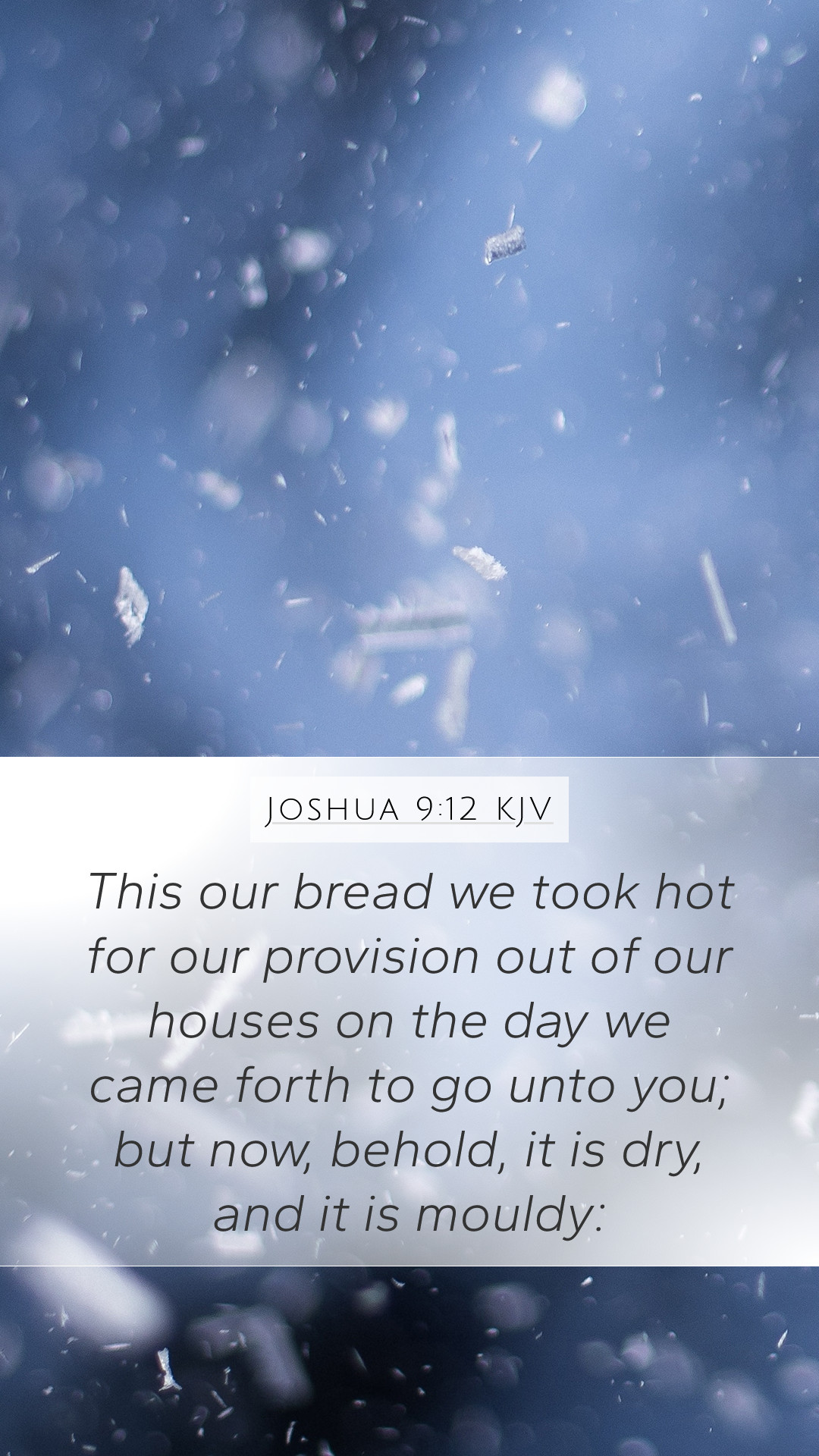Understanding Joshua 9:12
Bible Verse: "This our bread we took hot from our houses, the day we came forth to go unto you; but now, behold, it is dry, and it is moldy." (Joshua 9:12)
Overview of Joshua 9:12
The verse is part of a narrative where the Gibeonites deceptively approach Joshua and the Israelites, claiming to be travelers from a distant land, seeking a peace treaty. This verse emphasizes their tactical deception through the condition of their bread, illustrating their claim of being in need and removed from the land of Canaan.
Meaning and Interpretation
- Tactical Deception: This verse highlights the Gibeonites' strategic maneuvering. They present the bread as a symbol of their long journey and alters its condition to support their narrative.
- Physical Evidence: The mention of "hot bread" evolving into "dry and moldy" serves as a visual aid to invoke empathy and sympathy from Israel. It encapsulates the theme of appearances versus reality.
- Warnings against Naivety: This verse serves as a reminder to be cautious. Just as the Gibeonites manipulated the evidence presented, believers are encouraged to discern and not take every claim at face value.
Commentary Insights
Matthew Henry:
Henry suggests that the Gibeonites' cleverness showcases human cunning and serves to illustrate the simplicity and credulity of Joshua and the Israelites. He emphasizes the need for spiritual discernment in every aspect of life, including alliances.
Albert Barnes:
Barnes elaborates on the notion of deception. He interprets the moldy bread as a representation of the past; the Gibeonites wanted to draw Joshua's attention away from the present realities of their situation. It serves as a caution about judging based on outward appearances and the necessity of thorough investigation.
Adam Clarke:
Clarke underscores the cultural context, highlighting the significance of hospitality and the value placed on bread as a fundamental sustenance. He posits that the Gibeonites, by presenting dried bread, were showing a semblance of humility and need, which was culturally compelling and impactful for their narrative.
Bible Study Insights
This verse invites deeper Bible verse analysis regarding themes of trust, deception, and discernment in the context of covenant relationships. Analyzing this narrative can provide valuable lessons for Bible study groups exploring how to navigate relationships and commitments.
Applying the Lessons
In light of Joshua 9:12, believers are encouraged to reflect on how one might apply this lesson of discernment to daily life, especially in situations where trust is required. Understanding Scripture can illuminate practical applications, such as verifying claims and the ongoing need for wisdom in decision-making.
Cross References
- 2 Corinthians 11:14 - Discusses Satan transforming himself into an angel of light.
- Proverbs 14:15 - The naive believes every word, but the wise considers their steps.
- Matthew 7:15 - Jesus warns against false prophets who come in sheep's clothing.


